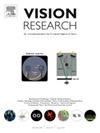Extracellular vesicles as emerging players in glaucoma: Mechanisms, biomarkers, and therapeutic targets
IF 1.4
4区 心理学
Q4 NEUROSCIENCES
引用次数: 0
Abstract
In recent years, extracellular vesicles (EVs) have attracted significant scientific interest due to their widespread distribution, their potential as disease biomarkers, and their promising applications in therapy. Encapsulated by lipid bilayers these nanovesicles include small extracellular vesicles (sEV) (30–150 nm), microvesicles (100–1000 nm), and apoptotic bodies (100–5000 nm) and are essential for cellular communication, immune responses, biomolecular transport, and physiological regulation. As they reflect the condition and functionality of their originating cells, EVs play critical roles in numerous physiological processes and diseases. Therefore, EVs offer valuable opportunities for uncovering disease mechanisms, enhancing drug delivery systems, and identifying novel biomarkers. In the context of glaucoma, a leading cause of irreversible blindness, the specific roles of EVs are still largely unexplored.
This review examines the emerging role of EVs in the pathogenesis of glaucoma, with a focus on their potential as diagnostic biomarkers and therapeutic agents. Through a thorough analysis of current literature, we summarize key advancements in EV research and identify areas where further investigation is needed to fully understand their function in glaucoma.
细胞外囊泡是青光眼的新兴参与者:机制、生物标志物和治疗目标
近年来,细胞外囊泡(EVs)因其广泛分布、作为疾病生物标志物的潜力以及在治疗中的应用前景而引起了科学界的极大兴趣。这些被脂质双分子层包裹的纳米囊泡包括小细胞外囊泡(sEV)(30-150 nm)、微囊泡(100-1000 nm)和凋亡体(100-5000 nm),它们对细胞通讯、免疫反应、生物分子运输和生理调节至关重要。EVs 反映了起源细胞的状况和功能,因此在许多生理过程和疾病中发挥着关键作用。因此,EVs 为揭示疾病机制、增强给药系统和鉴定新型生物标记物提供了宝贵的机会。这篇综述探讨了 EVs 在青光眼发病机制中新出现的作用,重点关注 EVs 作为诊断生物标志物和治疗药物的潜力。通过对当前文献的全面分析,我们总结了EV研究的主要进展,并确定了需要进一步研究的领域,以全面了解它们在青光眼中的功能。
本文章由计算机程序翻译,如有差异,请以英文原文为准。
求助全文
约1分钟内获得全文
求助全文
来源期刊

Vision Research
医学-神经科学
CiteScore
3.70
自引率
16.70%
发文量
111
审稿时长
66 days
期刊介绍:
Vision Research is a journal devoted to the functional aspects of human, vertebrate and invertebrate vision and publishes experimental and observational studies, reviews, and theoretical and computational analyses. Vision Research also publishes clinical studies relevant to normal visual function and basic research relevant to visual dysfunction or its clinical investigation. Functional aspects of vision is interpreted broadly, ranging from molecular and cellular function to perception and behavior. Detailed descriptions are encouraged but enough introductory background should be included for non-specialists. Theoretical and computational papers should give a sense of order to the facts or point to new verifiable observations. Papers dealing with questions in the history of vision science should stress the development of ideas in the field.
 求助内容:
求助内容: 应助结果提醒方式:
应助结果提醒方式:


